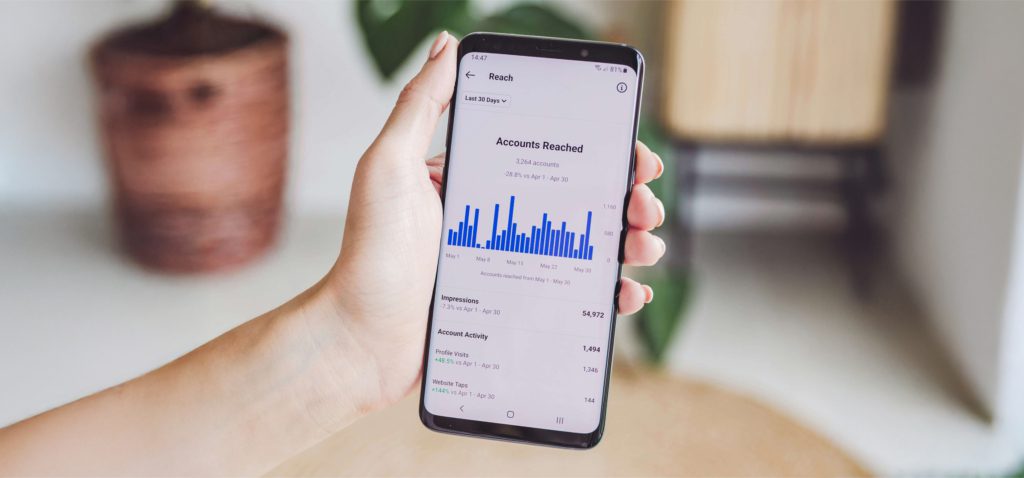Link building can be hugely effective for improving the SEO authority of your site. In essence, the practice refers to building up the number of links which point to your site.
These links act as ‘votes of confidence’, telling search engines that your site is a valuable resource. Once search engines have figured out that a number of high authority sites are recommending your site, they will give you a boost in rankings to recognise the authority you have been awarded with.
In this guide, we cover the effectiveness of various link building strategies, the questions you should ask yourself when identifying link building opportunities and 6 tricks to take your link building projects to the next level.
Link building strategies
There are a number of strategies you can use for your link building efforts. Here, we have ranked them according to their effectiveness.
Not effective – posting to social media sites and forums
Adding linkbacks to your site on social media sites and forums will have little, if any, impact on your backlink profile. That’s because sites which are focused on user-generated content (UGC) – or have sections dedicated to this style of content – will have the nofollow tag automatically applied.
In other words, Google has recognised that people could effectively self-endorse their site and spread links across thousands of these sites. The automatic no-follow tag means that the search engine is instructed not to use the link to calculate the ranking for that site.
Slightly effective – posting to local directories
If your business targets a local customer base or has a specific geographic reach, posting to local directories can be effective for boosting your visibility to the right people. By getting listed on a popular directory that people trust when they are searching for businesses, you can boost your rankings.
You can post in general directories, niche directories, local listing and business listings. Ensure you pick the right directories as you want to ensure you are relevant and reaching the right target audience. Spamming posts in as many directories as you can will not do your SEO efforts any favours.
A little more effective – asking for links
If your business is not limited to a specific geographic reach, or you want to take your efforts up a notch, you can reach out to websites and ask if they would be willing to link to yours. Identify an asset you want a backlink to – such as a high-performing blog, an eBook or simply your homepage.
You will need to identify sites which are relevant to your niche and likely to accept backlink requests. There is no guarantee you will get positive results, so this process can be time-consuming with little to show for it.
Moderately effective – writing guest posts
You can build up your backlink profile by asking other sites if you can produce a guest post for them. Again, you will need to ensure the site is relevant to your niche.
You should also ensure you choose sites which aren’t well-known for endorsing hundreds of guest posts from whoever is willing to pay, as search engines will figure out that sites are paying for backlinks if they haven’t already.
If you are setting a regular budget to one side so you can pay for guest articles, consider that you are at risk of being penalised for link spam if you accidentally choose toxic sites for your post requests. Not only are you losing money, but you could be hurting your SEO.
On a side note, don’t forget to perform regular backlink audits to disavow toxic links, as sites like these may be linking to you without your knowledge.
Most effective – earning links from high-quality domains
The most effective way to gain high-quality backlinks is to create interesting material that can be sent out as press releases to sites with a high domain ranking. Whether you are promoting this material yourself or other sites are naturally noticing it due to your brand presence or the impact of your material, by generating dofollow links to your site in this way you are giving your SEO a huge boost.
Examples of interesting material you can create include eye-opening surveys, unique and original research or creating online tools and calculators.
If you are creating genuinely helpful or newsworthy materials then sites will naturally be encouraged to link to you – giving you that ‘vote of confidence’ you need to send Google positive signals about your site authority.
Identifying the right opportunities
No two backlinks are created equal. There are a number of factors you should consider ahead of building a link to your site. Ask yourself the following questions:
Is the site high authority?
The higher authority a site is, the more power its backlinks have. In other words, the SEO boost you get from such a backlink will be greater if you can obtain one from such a site. You can use backlinks analytics tools to find out what the domain ranking of a site is.
Try and go for sites with good authority where possible – but don’t turn down backlinks from lower authority sites, either. Having a number of smaller ‘votes of confidence’ can still help your SEO efforts.
Is the site relevant to my niche?
The site you target should bear relevance to the niche your own site is focused on. If you have a site selling yoga products and you gain a backlink on a site about fishing, you aren’t meeting the relevance criterion.
Users won’t gain much from clicking on this backlink, as they will most likely be fishing enthusiasts with no interest in yoga! Ultimately, gaining irrelevant backlinks will not move your own SEO authority forwards.
Will the backlink be given a good placement?
Backlinks should be easily visible and prominent in order to be given a good weighting. If your backlink is placed in the footer or the sidebar, it will be given less priority by search engines, and you will not get as much out of the link building opportunity as you could be.
It’s recommended to seek backlinks which are both prominent and high up in the body copy. If the site is treating your link as a primary source for readers to find out more, this sends the ‘vote of confidence’ to search engines that you need for your link building effort to pay off.
What is the anchor text?
When your backlink is inserted in the body copy, you want the anchor text – the words which include the hyperlink to your site – to be relevant and descriptive. Ideally, the words will provide an overview of what readers can expect to find when they click on the link, such as the summary of the findings in the report you are seeking backlinks for.
It isn’t advisable for backlink anchor text to read ‘click here’, ‘find out more’, or similar, as this tells the reader nothing about what they can expect when they click on the link. It also doesn’t give clear signals to search engines about what they can expect to find when they crawl the site link.
Is the backlink nofollow or dofollow?
You want to ensure your backlinks are dofollow, as this will send signals to search engines that the site endorses the connection to your site. If you have a nofollow backlink to your site, then search engines are being told not to follow the outbound link. This means your link building effort is essentially fruitless. Dofollow links will therefore pass on the authority you need.
Other attributes you want to avoid are rel=”sponsored” and rel=”ugc”. The sponsored attribute indicates that the link was created as part of an agreement between the two parties, and the ugc attribute indicates the link appears within user generated content. You will not get the same level of authority passed on with these attributes applied to your backlinks.
6 methods for effective link building
There are a number of ways you can build links, some of which will be more successful for you than others. Try them all out and learn which ones work best for you.
1. Reach out to prospects
One of the main ways sites build links is by having people reach out to prospects, whether they are asking for a guest post or sending a press release for their consideration. You can use link building tools for this exercise if you want to automate the process. These tools are useful as you can outline the keywords you want to rank more highly for and get matched with prospects you can reach out to.
You can also reach out manually to prospects you have identified, perhaps by creating a media list or building relationships with influential brands in your niche. Just be sure to track your progress on a spreadsheet, project management tool or similar, as you want to stay on top of who you have contacted, who has replied, who needs to be chased, and so on.
2. Become a source
Another popular branch of link building is to become a source yourself and respond to journalist enquiries. Tools such as HARO and Response Source send out regular daily requests from journalists who are seeking expert comment on a particular issue. You can ensure you are subscribed to receive requests for your niche, then size them up regularly and decide which ones you are able to respond to.
By completing more of these requests over time, you will gain more insight into the types of stories specific journalists are seeking, as well as the ideal layout for your response so that you can optimise it moving forwards.
Understanding what journalists are looking for can also help you to anticipate trends and create content in advance. You may even be able to send out pre-emptive press releases to journalists providing commentary on a trend or news item which will satisfy their need for an expert quote before they even prepare a request.
3. Broken link building
This technique is not as widely used but it can still prove to be effective. It involves finding broken external links on other websites in your industry, then reaching out to them and proposing they link to your page instead.
Ultimately, you are providing them with a quick and easy solution, as broken links will be hurting that site’s SEO and including a replacement will be quicker than trying to figure out what went wrong with the original link.
You can craft a persuasive yet concise pitch when you reach out to suggest including your link where the broken one currently sits, highlighting the benefit of fixing broken links in a timely manner. By rinsing and repeating this process, you may be able to thwart your competitors’ efforts by replacing their own backlinks if the original pages have been retired or moved.
4. Unlinked brand mentions
This approach is effective if you have an established brand presence and sites are already mentioning yours. You can set up news alerts with PR tools, or Google Alerts, and find out when other sites are discussing you. Sometimes, these mentions will not be linked to your site, and so you can use these opportunities to reach out and request working links.
You can also work backwards and look at the backlinks audit tool to work out when the link has been removed from a site, then reach out and request it is fixed so you can reclaim them. Sometimes this effort may not be worth it if the site is particularly low authority, but for the most part it will be a helpful exercise.
5. Revive dead links
When you examine lost backlinks using your audit tool, you may figure out that the backlink was removed due to the linking page being redirected, the page being retired, or similar. You can reach out for a replacement link, describing the situation and proposing they include your link on an alternative page.
The best way to keep on top of this practice is to run regular backlink audits for your domain so you can check for lost links. Just be sure to use a low toxicity filter so that you aren’t accidentally requesting backlinks on toxic sites which could hurt your SEO.
6. Treat link building as ongoing
Link building doesn’t end after a few successful campaigns or projects. Search engines need regular and consistent votes of confidence from third party sites in order to keep awarding your own site the resulting SEO boost.
It is advisable to run regular campaigns to stay on top of your backlink profile, as well as regular link audits so that you can disavow toxic backlinks.
Need help with your link building?
If you haven’t given your link building efforts much thought, or you need some help with boosting your backlink profile, get in touch and find out how we can help with your digital PR.
We also offer Free Acquisitions Workshops that will give you valuable insight into your sites’ current organic performance – as well as fixes you can perform to give your SEO a boost.












